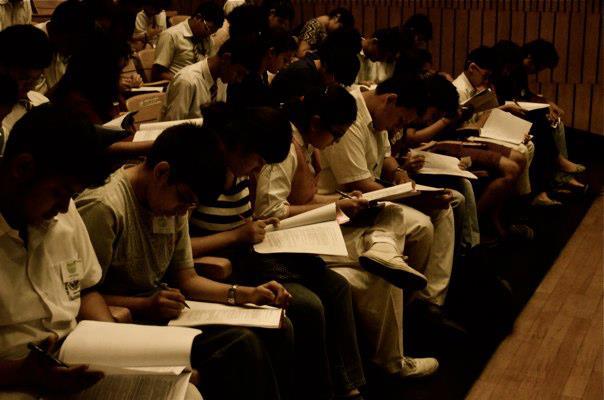Blog » Equality vs Affirmative Action – Project Enable
October 15, 2012

By Raunaq Kalia
On a bright sunny Saturday morning, when the schools are closed and children prefer to sleep till noon without the worry of missing their school bus or arriving late for the morning assembly- sixty odd young boys and girls from the city gathered at the Alliance Francaise Auditorium to commit themselves to action and learn about the ‘Right To Education Act.’ We may know about the provisions of the RTE but do we really understand the implications for all the factions involved? For most, it’s something the schools and the HRD Ministry should be concerned with but we at Becoming I think differently, Project Enable is our latest project and in the course of the next 4 months, it aims to inform and shape opinions for the smoother implementation of the controversial RTE act.
When we usually talk about our projects, school children have never really been an active part of our team of volunteers or coordinators. But, for ‘Enable’ it was absolutely necessary to confront the problem with those who’d be most affected- the school and students. For children this age, school is a safe haven, they spend six hours a day learning about the world around them- the ugly truths of life and that santa isn’t a real person. The RTE will directly affect them, if ratified, and will change the environment that they have adapted to already.
Students from prestigious schools have come forward with an urge to learn about the RTE and create sustainable models suited for their school, in order to make them more accessible to students from economically weaker sections of the society. Tulika Mohan, a student of Sanskriti School was very excited about the workshop. When asked about her expectations, she replied “I think it is going to be very interesting to know about the RTE and also about people who are really working for the cause.” Project Enable has been structured in order for it to be competitive and at the same time beneficial for those who are taking an active part in it. After the series of workshops, the models developed by each school will be put to test by a panel of judges from the education sector. The best model will be selected on the basis of its sustainability, expected success rate and the ease with which it can be implemented.
Our first workshop focussed on getting the kids acquainted with the provisions of the RTE and the major problem areas that could be a possible hindrance to its implementation. The project head, Siddharth Peter de Souza has designed the workshop around a series of activities that makes the whole process very engaging. He has also tried to include case studies in order to make them understand the pros and cons of the RTE better. Talking about the intricacies of the project, Siddharth said, “We support the RTE and we are trying to change the way schools think. We want the students to come up with a customised model for their own schools so that it is accepted by the PTA and the management. Even if 5 students talk about it to 10 more, we will be able to make a difference.”
The students will be guided and trained by their mentors, who are college students from the Delhi University. Palash who is an Economics student at the Kirori Mal College and also the mentor for St. Columba’s School was happy with his team’s response. He was delighted to know that some team members had already worked with NGOs and wanted to help the less fortunate. In the next four months, these students will face the imminent issues of finance, integration, acceptability and adaptability that plague the implementation of the RTE. We will keep a track of their journey and hope that education becomes what it should have become years ago – free, compulsory and reasonable.